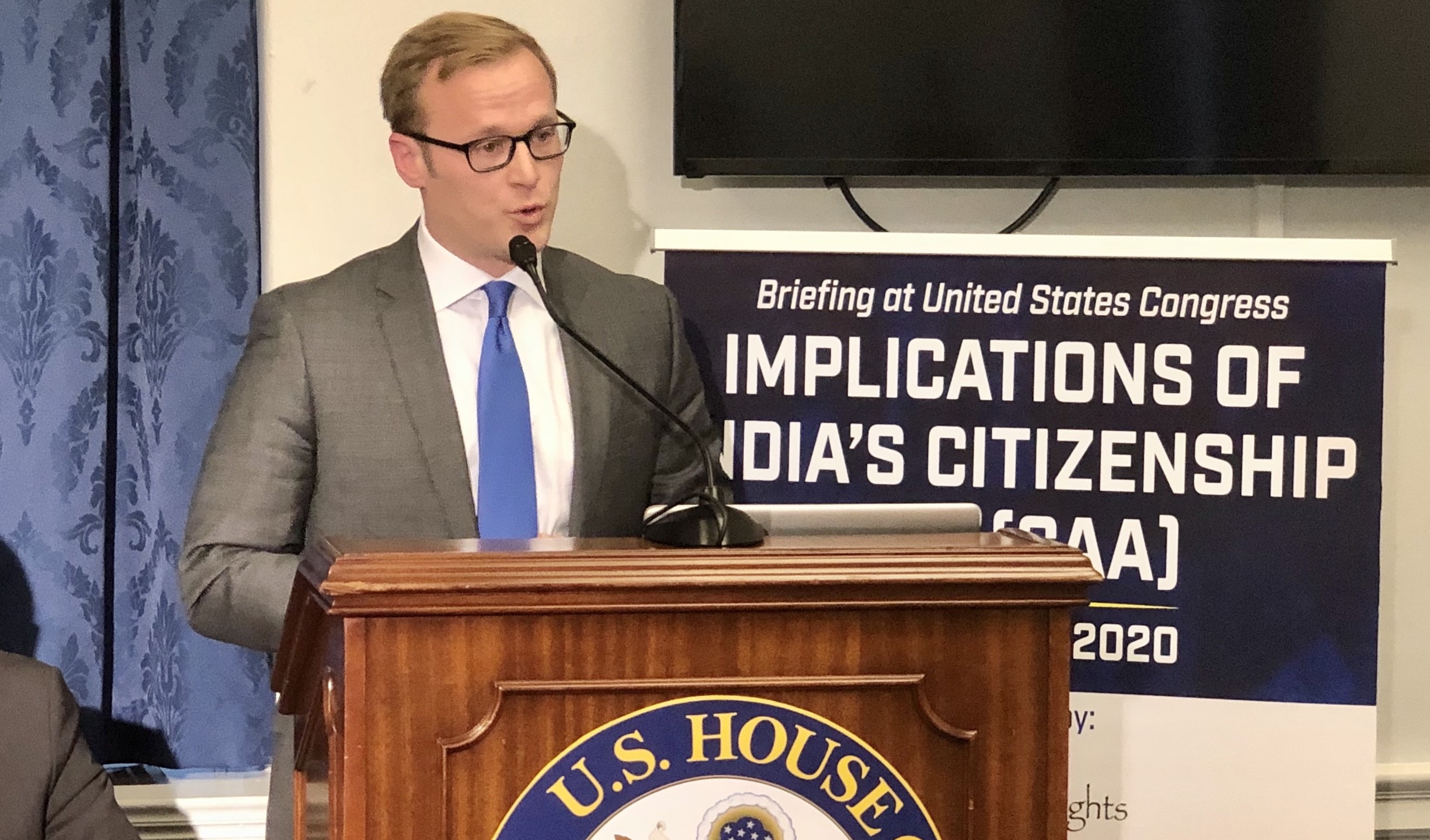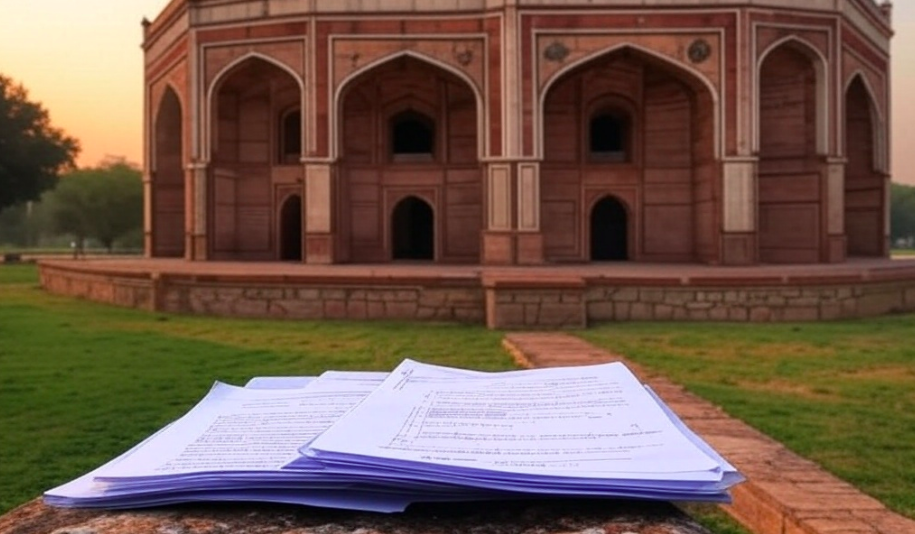BeyondHeadlines News Desk
Washington, D.C.: The U.S. must oppose the Citizenship (Amendment) Act that aims to deny citizenship to Muslims and render them stateless, subject to detention and deportation, an official with the United States Commission on International Religious Freedom (USCIRF) has said.
The U.S. Government must also consider the “use of targeted sanctions against Indian officials primarily responsible for religious freedom violations,” Harrison Akins, Policy Analyst (South Asia) with USCIRF, said at U.S. Congress on Monday.
In conjunction with a potential nationwide National Register of Citizens and National Population Register, this law, the Citizenship (Amendment) Act, “could become a weapon to target millions of Indian Muslims, potentially leading to their disenfranchisement. This represents a significant downward turn in religious freedom that no government, including the United States government, can ignore,” Akins said.
“In India today, the freedom of religion or belief is being decimated as individuals are targeted simply due to their religious identity, in violation of India’s own constitution,” Akins said at a Briefing titled “Implications of India’s Citizenship Law (CAA)”.
“It is imperative that in U.S. government officials’ interaction with their Indian counterparts, these issues are elevated as a U.S. foreign policy priority, communicating the need to protect shared democratic values.”
Akins said in its dealing with India U.S. should deploy “a vast array of tools [it] has in its arsenal to promote religious freedom abroad, both through positive engagement and punitive action.” Such tools include “the integration of religious freedom in U.S. development programs or law enforcement training” and “sanctions”.
USCIRF is an autonomous federal commission of the U.S. Government founded by the International Religious Freedom Act passed by U.S. Congress in 1998.
Last month after India’s Parliament passed CAA, USCIRF had called for the U.S. Government to sanction India’s Home Minister Amit Shah.
Monday’s briefing was attended by staffs from the House Committee on Judiciary and from the offices of 20 Members of Congress, including seven U.S. senators. Officials from Department of State, which implements US-India policy, also attended it.
The Briefing was organized by Indian American Muslim Council, the largest Indian American advocacy group in the US working for minority rights in India; Hindus for Human Rights; Council on American-Islamic Relations; and Emgage Action.
In its Annual Report, special reports and public statements, USCIRF has “long expressed its concern that this law is part of an effort by [Indian Prime Minister Narendra Modi’s party] BJP government to create a religious test for Indian citizenship in line with their vision of a Hindu state,” Akins said.
“As is abundantly evident from the statements of BJP leadership, the CAA with its legal protections for non-Muslims is intended to ensure that those excluded from the NRC process, and therefore bearing the label of illegal migrant, are Muslims alone.”
The NRC held in Assam last year showed the “process is rife for abuse by government officials for excluding individuals simply perceived to be foreign regardless of their citizenship status,” Akins said. “It is Muslims who will carry the threat of punitive action from the NRC, including prolonged detention, deportation, or statelessness.”
Akins called out the ideology of Hindutva, professed by Prime Minister Modi and Home Minister Shah, that perceives Islam and Christianity as “foreign religions”.
“Conditions for religious minorities have deteriorated precipitously in India. BJP politicians have used the symbols of Hinduism and policies aimed at their protection as weapons against minority communities in their quest to shape a Hindu nation.
“From instituting more aggressive bans and stricter punishments for cow slaughter and religious conversion activities, minorities are increasingly marginalized and discriminated against.
“Combined with the BJP’s inflammatory rhetoric, these coordinated actions strengthen the perception that minorities are outsiders with no legitimate place in Indian history or society and, by their mere presence, a potential threat from within to the project of making India a Hindu nation.
“This creates a culture of impunity for violence against minorities by both government authorities and non-state actors as a near daily reality for minority communities.”









